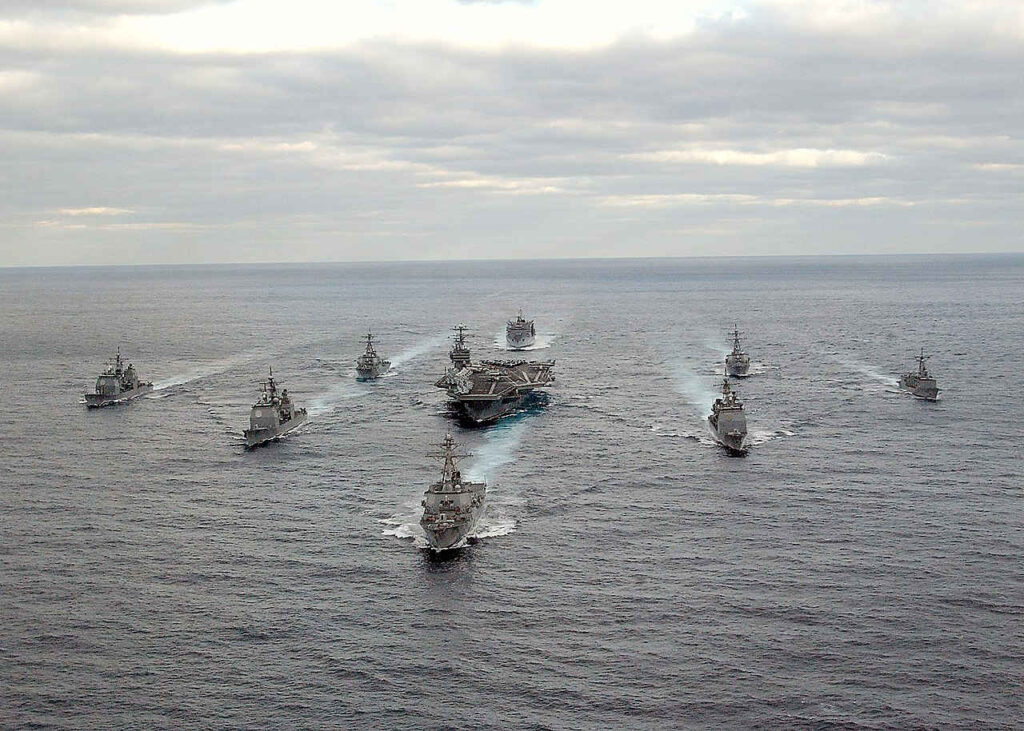
The Pentagon announced the creation of a grand naval coalition last month to ensure maritime security in the Red Sea amid a spate of attacks targeting Israeli and Israeli-bound commercial vessels by Yemen’s Houthi militia.
The coalition flopped after several major US allies pulled out, while others sent just a handful of shipless seamen.
The West’s failure to put together a coalition to secure the Red Sea is a worrying sign for NATO and EU unity, Luigi Binelli-Mantelli, a retired Italian admiral and former chief of staff of the Italian Navy and Italy’s Defense Staff, has said.
“France and Italy won’t join the US-led coalition in the Red Sea. This will have no impact from an operational point of view, since navies are well trained to coordinate their actions even outside a definite chain of command, but politically it’s proof of our weak cohesion as NATO as well as EU partners,” the senior former naval officer said.
“We must cope with [the Red Sea crisis] because this is not simply aimed against Israel, it’s a direct challenge to all Western countries, testing our determination and cohesion to protect our economy and our common values and way of life,” Binelli-Mantelli suggested.
The admiral encouraged the Western bloc to “revise and widen its role in the world’s stability and security,” and called on Brussels to “wake up from its ecumenic dream and think twice about its own solidity,” presumably referring to European nations’ efforts to create joint military forces based in EU structures instead of relying solely on NATO and the US.
The Washington-led ‘Operation Prosperity Guardian’ coalition got off to a rocky start after being announced last month after key Western allies including Italy, France and Spain refused to join, while others including the Netherlands, Norway, Australia, and Canada committed only handfuls of military personnel, but no warships.
Yemen’s Houthis – the Shia militia which began a campaign of hijackings, drone and missile attacks against commercial vessels owned by Israelis or on route to or from Israel in November in solidarity with Gazans, have threatened to turn the Red Sea into the coalition’s “graveyard” if Western powers attempt to attack Yemen.
The standoff between the US and the militia turned deadly on December 31 after ten Houthis aboard small boats attempting to seize a commercial ship were killed by helicopters launched from a US carrier strike group.
But the Houthis have remained defiant, promising to continue to target Israeli and Israeli-affiliated commercial vessels, and warning that the Red Sea would become unsafe to countries taking part in the American-led coalition as well.
The Yemeni militia’s campaign has led shipping majors to halt operations through the Red Sea, forcing ships to take the long way between Europe from Asia around southern Africa, adding thousands of nautical miles, days or weeks of time and millions of dollars in shipping costs to each journey. Spain’s El Pais newspaper reported last week that at least 18 shipping lines had been forced to reroute ships to date, and that the Houthi campaign has caused global shipping costs to climb by some 170 percent so far.
KnowTheKnowledgeChannel
https://www.bitchute.com/channel/dJSnllvdADz3/